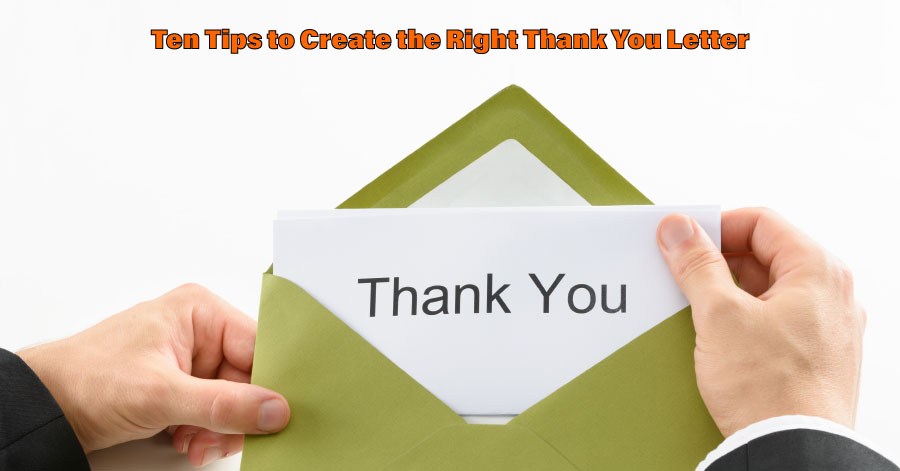After crafting a compelling resume and acing the interview, the next critical step is often overlooked: sending a thoughtful thank-you letter. This seemingly simple gesture can set you apart from other candidates, helping to reinforce your interest in the role and make a lasting impression on potential employers.
Despite the perception that thank-you letters are outdated, they remain a powerful way to show appreciation and professionalism. A well-composed thank-you letter can strengthen your candidacy and remind the hiring manager of your enthusiasm, qualifications, and genuine interest in the position.
1. Keep It Concise
Hiring managers are busy, so brevity is appreciated. Keep your thank-you letter concise—ideally, no more than one page. Begin with a sincere expression of gratitude for the interview and the opportunity to discuss the role. For example, say:
“Thank you for the opportunity to interview for the Marketing Specialist position. I appreciated learning about the innovative projects your team is spearheading.”
2. Reflect on the Interview
Referencing specific details from your interview shows attentiveness and helps personalize your message. Reflect on standout moments highlighting your understanding of the role or the company’s needs. For instance:
“Our discussion about the team’s upcoming project on eco-friendly product development resonated with me, as I have extensive experience in sustainable marketing strategies.”
3. Timeliness Matters
Sending a thank-you letter promptly, ideally within 24–48 hours, reinforces your enthusiasm and commitment. A timely note respects the hiring manager’s time and keeps you fresh as they consider candidates.
4. Maintain Professionalism
Regardless of the format—whether sent by email or traditional mail—ensure your language remains courteous and professional. Use a formal greeting and a respectful closing. Address the recipient by name and tailor your letter to the interview’s tone. If the interview was particularly formal, maintain that style in your letter.
5. Highlight Key Qualifications
Briefly reiterate the skills and experiences that make you a strong fit for the role, offering additional context if possible. Avoid simply rehashing your resume. Instead, focus on one or two key strengths relevant to the position. For instance:
“My background in digital media strategy, combined with my recent certification in data analytics, aligns well with your team’s goal to increase online engagement.”
6. Personalize Your Message
To make a genuine impact, personalize your thank-you letter. Mention a memorable detail or an insightful exchange from your conversation. This makes your letter feel authentic and can help the hiring manager recall your interaction.
“I enjoyed our discussion about innovative storytelling techniques in marketing and would love to bring my creative approach to your team.”
7. Include Additional Insights
If there’s a quality or experience you didn’t have the chance to mention during the interview, briefly address it in your letter. This can help provide a fuller picture of your qualifications.
“While we discussed my background in project management, I didn’t get to share my experience coordinating cross-departmental initiatives—a skill I believe would be highly beneficial in this role.”
8. Stay True to Yourself
Authenticity is essential. Let your voice come through naturally, as hiring managers can sense sincerity. Avoid overly formal language that doesn’t match your personality, and communicate genuine interest and confidence. For instance, instead of a stiff closing, try:
“I am truly excited about the opportunity to contribute to your team and eagerly await the possibility of working together.”
9. Provide Contact Information
Even if your contact information is on your resume, include it in the thank-you letter to make it easy for the employer to follow up. In the closing section, provide your email address and phone number to streamline communication.
10. Review and Revise Carefully
Before sending your thank-you letter, proofread it carefully. Typos or grammatical errors can detract from a positive impression, so take the time to ensure your letter is polished. If possible, ask someone you trust to review it as well.
Example Scenarios and Phrasing
In certain cases, it’s beneficial to address unique circumstances in your thank-you letter. Here are some examples:
Addressing Potential Concerns: If the interview raised a potential concern, such as limited experience in a specific area, acknowledge it positively.
“I understand the importance of experience in X for this role and am committed to continuous learning and upskilling in this area to ensure I meet the demands of the position.”
Following Up on Unanswered Questions: If an interviewer asked a question that you weren’t able to answer fully, provide a concise response in your thank-you letter.
“After reflecting on your question about X, I wanted to add that my experience in Y has equipped me with transferable skills that can support this area.”
Reaffirming Flexibility: If the role requires relocation or specific availability, mention your flexibility and readiness to meet these requirements.
“I’m excited to move forward with this opportunity and am fully prepared to relocate to X city if offered the role.”
Conclusion
End your letter with a sincere expression of gratitude, reinforcing your interest in the role.
“Thank you again for your time and consideration. I look forward to the possibility of contributing to your team.”
A well-crafted thank-you letter can make all the difference in leaving a lasting, positive impression on your potential employer. For more insights and job search tips, feel free to reach out to Candace for assistance!

